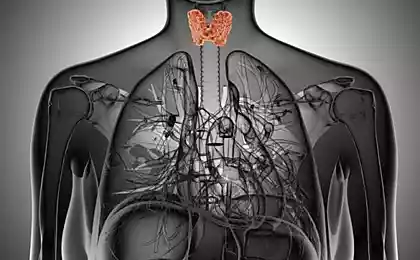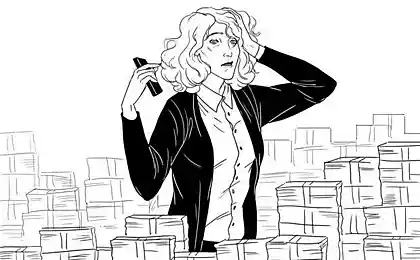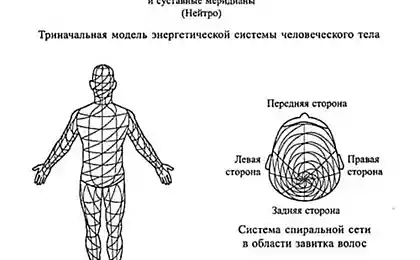637
The 5 stages of Hashimoto's thyroiditis
If you are diagnosed with Hashimoto's thyroiditis, the way you think, what stage of the disease you have? What these five stages of Hashimoto's thyroiditis differ? And why is it important to catch the disease at an earlier stage of the disease?
What is known about Hashimoto's thyroiditis?1. Hashimoto's thyroiditis is an autoimmune disease. This means that the immune system attacks the thyroid tissue and destroys them.
Twenty three million two hundred two thousand nine hundred ninety nine
2. When this destruction continues long enough, the person loses the ability to produce thyroid hormone.
3.Hashimoto's is a progressive autoimmune condition that causes destruction of the thyroid gland, hypothyroidism, and in some cases to other autoimmune conditions.
4.Hashimoto's usually not detected until the disease has progressed to the advanced stage, where there is already significant damage to the thyroid gland.
5. On average, people diagnosed with Hashimoto's 10 years pass between the beginning of the immune attack on the thyroid and the time diagnosed.
Why is this happening? Do people not feel sick, I feel bad?
Poor health makes itself felt, people turn to the doctor.
In the best case, a regular doctor will prescribe 1 or 2 of the analysis (TSH and T4). And they are early in the disease normal. A sick person does not receive treatment, he is told that he is healthy, and if he is "not satisfied", then a psychiatrist can send.
6. The longer the thyroid thrives immune response, the more likely:
The most useful tests for the diagnosis of thyroid are:
8.When in the human body there is one autoimmune disease, you may receive your second and your third.
9. Currently in medicine there are no recommendations for treatment (or termination) attacks immune system thyroid.
10. The emphasis is on restoring normal levels of thyroid hormones.
11. If people in the early stages of the disease when the thyroid function is not impaired, he will hand over the analysis on TPO, and he will be elevated, then the doctor will tell you what needs to be observed.
That is, the doctor will not help you to deal with an autoimmune disease.
Of course, when thyroid function is already broken, you must take thyroid hormone. But it is better not to bring themselves to this state. And it's real, if you have information on this topic. Our hardened ruthlessly practical medicine lags behind current knowledge, and patients with autoimmune diseases can't wait that long, but they can help themselves. Such are the times now.
Thirty million five hundred seven thousand five hundred twenty nine
The stage of development of Hashimoto's:Wiersinga and his colleagues in 2014, the article has identified 5 stages of Hashimoto's disease.
Stage 1. Genetic predisposition
1. Go on eating gluten free, casein free and sugar free.
2. To control the level of nutrients:
From her point of view, the development of this stage can go three different ways:
Change of a way of life, the search for the trigger of the autoimmune process are important at this stage to feel better and prevent further damage thyroid tissue.
Stage 4. Overt hypothyroidism.1. At this stage, the person has a deficiency of the thyroid gland.
2. The thyroid gland is destroyed to the point until she will no longer be able to produce its own thyroid hormone.
3. People will have elevated TSH level, with low levels of free T3 and free T4.
4. And thyroid antibodies may be even higher than in the previous stages.
5. This is the most common stage when a person is diagnosed with hypothyroidism, as in humans, there are many symptoms of a deficient thyroid function at this stage.
6. This is the stage when the person will need thyroid medication to prevent serious health consequences.
7. Usually all doctors almost always recommend treatment for the thyroid at this stage.
8. Changes in lifestyle and search for the trigger of the autoimmune process is critical at this stage of the disease.
9. But by the time when it comes to this stage of the disease, a person already has at least 10 years of experience of this disease.
10. And treatment must begin quickly and actively. Time to lose anymore.
11. Izabella Wentz often recommends that his patients LDN (naltrexone) at this time, as it can prevent the progression of autoimmune diseases in low doses.
12. At this stage, to achieve tissue regeneration thyroid, destroyed by an autoimmune process will be more difficult.
13. But science does not stand still, and new opportunities that can accelerate tissue repair thyroid.
This is a special lasers for tissue regeneration of the thyroid gland.
Stage 5. The emergence of other autoimmune disorders1.The presence of Hashimoto's disease in a person increases his risk of developing other autoimmune conditions:
Since the immune system is broken, not balanced, she finds to attack other organs and tissues.
3.Attacks are immune system can occur in the human body, which is "well treated", regularly visit the doctor, undergo tests, and tests of TSH, free T4 and free T3 were "normal".
4.Why the existing "treatment" of Hashimoto's disease does not prevent the emergence of other autoimmune diseases?
And here is the answer. Here he writes about this Izabella Wentz:
"But, unfortunately, thyroid medication and destruction of the thyroid gland is not doing anything to stop the progression of the disease»
After removal of the thyroid gland in the body no antibodies TPO and TG, but that won't stop the autoimmune progression. In addition, people who have had the thyroid gland removed will need to take the medicine – the thyroid hormone for the rest of their days.
What you need to know and recommends what to do Izabella Wentz?
1.Can be cured, but rather, to achieve sustained remission of the disease, significantly reduce and eliminate the symptoms of other autoimmune conditions.
2.She recommends "do not wait for the development of the disease" and begin to fight for your health with the very first stage of the disease, to prevent the 4 and 5 stage of the disease.
3. But how to deal with this disease, written many articles on this blog.
1.Autoimmune diseases don't always start with Hashimoto's disease.
2. It is believed that the first entity becomes susceptible to autoimmune damage, is a "weak link", that is, a person has a genetic predisposition or this body could be damaged.
3. Hashimoto's is the most common autoimmune condition, but TG is not always the "weakest link" for all.
4. Doctors say that to cure an autoimmune disease not. I'm not going to argue. I just want to remind you that there's a medical term "remission" What is remission?
Remission is defined as "the state of absence of disease activity in patients with chronic disease, with the possibility of return of disease activity". It is clear that remission is not a cure.
Remission is when:
Hashimoto's disease is not treated, so doctors say. But there is a functional treatment of Hashimoto's, this means "send the disease into long-term remission" for years or even the rest of your life. This should eliminate all triggers of the disease and thyroid antibodies, to regenerate and heal thyroid tissue. But it is much easier to prevent damage than to repair, tissue repair. published
Author: Galina Lukanova
P. S. And remember, just changing your mind — together we change the world! ©
Source: //pishhaizdorove.com/pyat-stadij-razvitiya-tireoidita-xashimoto/
What is known about Hashimoto's thyroiditis?1. Hashimoto's thyroiditis is an autoimmune disease. This means that the immune system attacks the thyroid tissue and destroys them.
Twenty three million two hundred two thousand nine hundred ninety nine
2. When this destruction continues long enough, the person loses the ability to produce thyroid hormone.
3.Hashimoto's is a progressive autoimmune condition that causes destruction of the thyroid gland, hypothyroidism, and in some cases to other autoimmune conditions.
4.Hashimoto's usually not detected until the disease has progressed to the advanced stage, where there is already significant damage to the thyroid gland.
5. On average, people diagnosed with Hashimoto's 10 years pass between the beginning of the immune attack on the thyroid and the time diagnosed.
Why is this happening? Do people not feel sick, I feel bad?
Poor health makes itself felt, people turn to the doctor.
In the best case, a regular doctor will prescribe 1 or 2 of the analysis (TSH and T4). And they are early in the disease normal. A sick person does not receive treatment, he is told that he is healthy, and if he is "not satisfied", then a psychiatrist can send.
6. The longer the thyroid thrives immune response, the more likely:
- damaged thyroid,
- the development of hypothyroidism (insufficiency of thyroid),
- need hormone replacement therapy.
The most useful tests for the diagnosis of thyroid are:
- detection of antibodies TPO
- definition of antibodies to TG
- ultrasound examination of the thyroid.
8.When in the human body there is one autoimmune disease, you may receive your second and your third.
9. Currently in medicine there are no recommendations for treatment (or termination) attacks immune system thyroid.
10. The emphasis is on restoring normal levels of thyroid hormones.
11. If people in the early stages of the disease when the thyroid function is not impaired, he will hand over the analysis on TPO, and he will be elevated, then the doctor will tell you what needs to be observed.
That is, the doctor will not help you to deal with an autoimmune disease.
Of course, when thyroid function is already broken, you must take thyroid hormone. But it is better not to bring themselves to this state. And it's real, if you have information on this topic. Our hardened ruthlessly practical medicine lags behind current knowledge, and patients with autoimmune diseases can't wait that long, but they can help themselves. Such are the times now.
Thirty million five hundred seven thousand five hundred twenty nine
The stage of development of Hashimoto's:Wiersinga and his colleagues in 2014, the article has identified 5 stages of Hashimoto's disease.
Stage 1. Genetic predisposition
- For the emergence of Hashimoto's disease requires the presence of a genetic predisposition to this disease.
- At this stage there is no change in the level of hormones, changes in thyroid ultrasound and no antibodies to TPO and TG.
- This stage could be called stage 0.
- If a person already has Hashimoto's disease, stage 1 have with his relatives and children.
- Stage 1 – this is the best time to take measures for the prevention of this disease.
- Hashimoto's is characterized by an excess of lymphocytes (white blood cells) in the thyroid gland. In small amounts, these immune cells play an important role in cleaning, but when too many of them in the body, it is a nuisance.
It is believed that initially, immune cells infiltrate the thyroid tissue with good intentions to clean the dead and sick cells of the thyroid gland, but at some point, they begin to attack healthy thyroid tissue. - Ultrasound examination of thyroid tissue, the doctor can see this cluster of cells.
- In this early stage of Hashimoto's, people usually have high antibodies of thyroid.
- Up to 80-90% of patients with Hashimoto's can have elevated levels of antibodies to thyroglobulin and antibodies to thyroid peroxidase.
- Some people never at this stage no increase in antibodies, although ultrasound and biopsy can confirm the autoimmune nature of the disease.
- This stage can last for several decades, and the levels of hormones TSH, T3 free and T4 free are normal.
- But in this stage, people may have symptoms of the disease: anxiety, fatigue, miscarriage or infertility, mood swings, excess weight or weight loss.This is due to the fact that the body is fighting hard to maintain the levels of thyroid hormone are normal.
- In addition, at this stage, there is always a dysfunction of the intestine (leaky gut).
- Unfortunately, most patients at this stage of the disease Hashimoto's is not diagnosed our classic medicine.
- At this stage only begins chronic inflammation.
- This stage is the perfect stage for the start active actions to prevent progression of thyroid damage.
- The person must identify the triggers of their illness and not allow it to develop.
1. Go on eating gluten free, casein free and sugar free.
2. To control the level of nutrients:
- Minerals magnesium, zinc, selenium, iodine
- Vitamins B12, B9, D
- Broth from chicken bones,
- Probiotic,
- Saccharomyces boulardii,
- The removal of parasites and harmful bacteria, and chronic infections,
- Stress management
- TSH may be a little higher than normal, and the levels of free T3 and free T4 – normal.
- Tests for antibodies can be higher than in stage 2, since the increase in TSH may enhance the inflammation of the thyroid gland.
- However, some people have tests for antibodies can still be negative.
From her point of view, the development of this stage can go three different ways:
- If you do nothing, the disease will progress to overt hypothyroidism.
- Some patients can improve their condition without the use of drugs.
- But given that elevated TSH promotes the thyroid, and if the patient himself is not going to change the diet to find the trigger of an autoimmune process, it is possible to appointment doctor a low dose of L-thyroxine.
Change of a way of life, the search for the trigger of the autoimmune process are important at this stage to feel better and prevent further damage thyroid tissue.
Stage 4. Overt hypothyroidism.1. At this stage, the person has a deficiency of the thyroid gland.
2. The thyroid gland is destroyed to the point until she will no longer be able to produce its own thyroid hormone.
3. People will have elevated TSH level, with low levels of free T3 and free T4.
4. And thyroid antibodies may be even higher than in the previous stages.
5. This is the most common stage when a person is diagnosed with hypothyroidism, as in humans, there are many symptoms of a deficient thyroid function at this stage.
6. This is the stage when the person will need thyroid medication to prevent serious health consequences.
7. Usually all doctors almost always recommend treatment for the thyroid at this stage.
8. Changes in lifestyle and search for the trigger of the autoimmune process is critical at this stage of the disease.
9. But by the time when it comes to this stage of the disease, a person already has at least 10 years of experience of this disease.
10. And treatment must begin quickly and actively. Time to lose anymore.
11. Izabella Wentz often recommends that his patients LDN (naltrexone) at this time, as it can prevent the progression of autoimmune diseases in low doses.
12. At this stage, to achieve tissue regeneration thyroid, destroyed by an autoimmune process will be more difficult.
13. But science does not stand still, and new opportunities that can accelerate tissue repair thyroid.
This is a special lasers for tissue regeneration of the thyroid gland.
Stage 5. The emergence of other autoimmune disorders1.The presence of Hashimoto's disease in a person increases his risk of developing other autoimmune conditions:
- celiac,
- psoriasis',
- rheumatoid arthritis,
- Sjogren's disease,
- lupuses,
- multiple sclerosis and many others
Since the immune system is broken, not balanced, she finds to attack other organs and tissues.
3.Attacks are immune system can occur in the human body, which is "well treated", regularly visit the doctor, undergo tests, and tests of TSH, free T4 and free T3 were "normal".
4.Why the existing "treatment" of Hashimoto's disease does not prevent the emergence of other autoimmune diseases?
And here is the answer. Here he writes about this Izabella Wentz:
"But, unfortunately, thyroid medication and destruction of the thyroid gland is not doing anything to stop the progression of the disease»
After removal of the thyroid gland in the body no antibodies TPO and TG, but that won't stop the autoimmune progression. In addition, people who have had the thyroid gland removed will need to take the medicine – the thyroid hormone for the rest of their days.
What you need to know and recommends what to do Izabella Wentz?
1.Can be cured, but rather, to achieve sustained remission of the disease, significantly reduce and eliminate the symptoms of other autoimmune conditions.
2.She recommends "do not wait for the development of the disease" and begin to fight for your health with the very first stage of the disease, to prevent the 4 and 5 stage of the disease.
3. But how to deal with this disease, written many articles on this blog.
- If your family has any autoimmune disease, but this disease with a genetic predisposition, then consider that you have the risk of this (or other) autoimmune disease. You have stage 1! You have genes of predisposition to autoimmune disease.
- What not to eat if you have an autoimmune diseases? Gluten, casein and sugar.
So you will a diet free of gluten and casein (BGBK diet) - To follow the intestines. "Leaky gut" — the entrance gate in your body to autoimmune diseases.
- To eradicate worms, harmful bacteria. Remember that many bacteria are not considered by our doctors harmful, but in some people they are triggers of autoimmune diseases, for example, Helicobacter pylori.
- Learn more about the healthy and right for you (including hereditary predisposition) nutrition. "Not all for you useful in his mouth climbed»
- Accustom children to a healthy and right diet. Diet BGBK is not so much food restrictions, how many different way of cooking, other ingredients for baking bread and bakery products.
1.Autoimmune diseases don't always start with Hashimoto's disease.
2. It is believed that the first entity becomes susceptible to autoimmune damage, is a "weak link", that is, a person has a genetic predisposition or this body could be damaged.
3. Hashimoto's is the most common autoimmune condition, but TG is not always the "weakest link" for all.
4. Doctors say that to cure an autoimmune disease not. I'm not going to argue. I just want to remind you that there's a medical term "remission" What is remission?
Remission is defined as "the state of absence of disease activity in patients with chronic disease, with the possibility of return of disease activity". It is clear that remission is not a cure.
Remission is when:
- fixed all triggers of the disease,
- a healthy gut and adrenal glands,
- no deposits of toxins in the body,
- there are necessary levels of macro - and micronutrients,
- there is a significant decrease of antibodies to the thyroid. The goal is to be less than 35.
Hashimoto's disease is not treated, so doctors say. But there is a functional treatment of Hashimoto's, this means "send the disease into long-term remission" for years or even the rest of your life. This should eliminate all triggers of the disease and thyroid antibodies, to regenerate and heal thyroid tissue. But it is much easier to prevent damage than to repair, tissue repair. published
Author: Galina Lukanova
P. S. And remember, just changing your mind — together we change the world! ©
Source: //pishhaizdorove.com/pyat-stadij-razvitiya-tireoidita-xashimoto/























